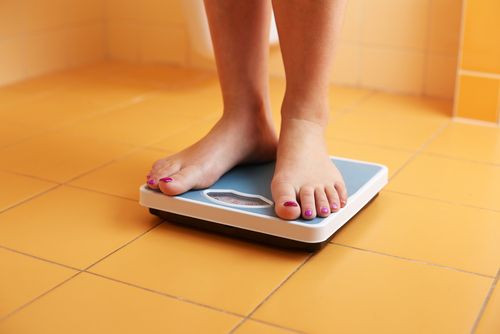Any Diet Will Work So Long As You Adhere To It: How To Stay On Track

BREAKING: Every diet is effective when you stick to it, according to the JAMA study you've most likely not been waiting for.
When researchers from McMaster University in Canada were unconvinced by actress-singer Jennifer Hudson’s Weight Watchers commercials (or so we assume), they took to see what kind of research had been done on branded diets like WW, also Atkins, Jenny Craig, Nutrisystem, and South Beach. The answer was not a lot. So they analyzed previous data collected from over 7,200 overweight and obese adults following a short-term branded diet, paying special attention to weight loss at six and 12 months, to see if there were any relative benefits.
At six months, people on low-carbohydrate diets (before LeBron James made them cool again) lost 19 more pounds than those who weren’t on a diet at all, compared to the 17 pounds people lost on low-fat diets. That 2-pound difference was basically obsolete at the 12-month mark. Researchers concluded that the “relatively small differences regarding [a diet’s] impact on weight loss” means it doesn’t really matter which diet you follow, just that you follow it. Because duh.
The additional findings also reiterated what many of us have heard before: Behavior support and exercise promote weight loss by an almost additional five pounds (or at least it did in this study).
See: The 2009 study from the University of Michigan found that people work out harder when they're doing so with a partner. That partner doesn't even have to be in the flesh. A separate UM study found motivating computer software can help a person accomplish the same results.
That said, it's hard to remember what a diet is when you're faced with certain obstacles, namely the fried kind. Sure, plain vodka has fewer calories, and sharing that appetizer saves you from beating yourself up later, but it's Friday night and you're just trying to live.
The thing is willpower starts to betray us after a while. Each person has a limited amount and when it runs out, people may be forced back into their old, unhealthier habits. One study from the University of Toronto-Scarborough found willpower can be exhausted.
"When people are fatigued they experience a change in motivational priorities such that they are less willing to work for the things they feel obliged to do and more willing to work for things they like to do," Michael Inzlicht, professor in the Department of Psychology at UTSC and affiliate faculty at U of T's School of Public Policy and Governance, said in a press release.
Inzlicht's solution is to think of those necessary tasks as ones you'd like to be doing. Finding pleasure in everyday activities can boost self-control, whether you're counting carbs, fat, or points.
Source: Johnston B et al. Journal of the American Medical Association. 2014.
Published by Medicaldaily.com



























